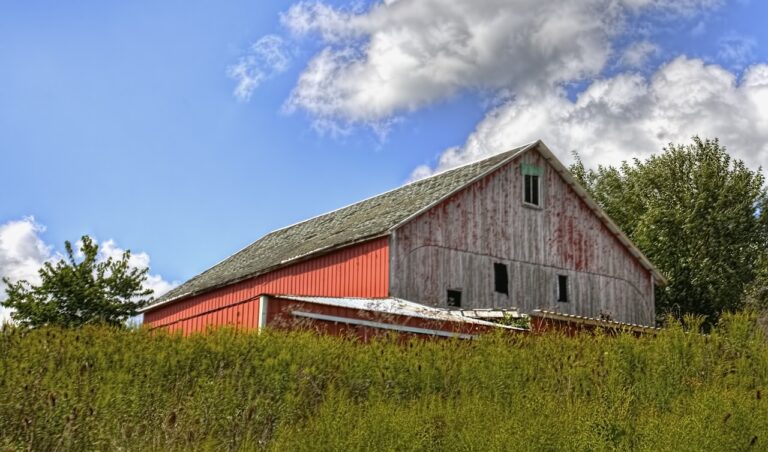Permits and Regulations for Outdoor Kitchen Construction
silverexch.com login, goldenexch, betbook 247.com:Permits and Regulations for Outdoor Kitchen Construction
Are you considering building an outdoor kitchen in your backyard? Before you start dreaming about grilling up a storm under the open sky, it’s essential to understand the permits and regulations involved in outdoor kitchen construction. By familiarizing yourself with the necessary requirements, you can ensure a smooth and hassle-free building process.
In this blog post, we’ll delve into the world of permits and regulations for outdoor kitchen construction. From understanding the different types of permits needed to complying with local building codes, we’ve got you covered. Let’s explore everything you need to know before embarking on your outdoor kitchen construction journey.
Navigating the Permit Process
Building an outdoor kitchen is an exciting project that can transform your backyard into a culinary haven. However, before you start hammering away at that BBQ island, it’s crucial to obtain the necessary permits. A permit is essentially official approval from your local government to proceed with your building project.
Here’s a breakdown of the typical permits you may need for outdoor kitchen construction:
1. Building Permit: A building permit is the most common type of permit required for outdoor kitchen construction. This permit ensures that your outdoor kitchen complies with local building codes and safety regulations. It covers aspects like structural integrity, plumbing, electrical work, and more.
2. Electrical Permit: If your outdoor kitchen includes electrical components like lighting, outlets, or appliances, you may need an electrical permit. This permit ensures that the electrical work is done safely and meets all relevant codes.
3. Plumbing Permit: If your outdoor kitchen includes a sink, dishwasher, or other plumbing fixtures, you’ll likely need a plumbing permit. This ensures that the plumbing work is done correctly and complies with local regulations.
4. Gas Permit: If your outdoor kitchen includes a gas grill or other gas appliances, you’ll need a gas permit. This ensures that the gas lines are installed safely and meet all applicable codes.
5. Zoning Permit: Some areas require a zoning permit for outdoor kitchen construction. This permit ensures that your project complies with local zoning laws and regulations, such as setback requirements and property line restrictions.
Navigating the permit process may seem daunting, but it’s an essential step in ensuring the safety and legality of your outdoor kitchen construction. Be sure to check with your local building department to determine the specific permits required for your project.
Complying with Building Codes
In addition to obtaining the necessary permits, it’s crucial to comply with local building codes when constructing an outdoor kitchen. Building codes are regulations that govern how buildings are constructed to ensure safety, health, and welfare.
Common building code requirements for outdoor kitchens may include:
1. Fire Safety: Outdoor kitchens typically involve the use of fire, whether through a grill, a pizza oven, or a fire pit. Building codes often have specific requirements for fire safety, such as maintaining adequate clearance between combustible materials and heat sources.
2. Electrical Safety: If your outdoor kitchen includes electrical components, such as outlets or lighting, you’ll need to comply with electrical codes. This may include using waterproof outlets, GFCI protection, and proper wiring methods.
3. Plumbing Safety: Proper plumbing installation is essential for the functionality and safety of your outdoor kitchen. Building codes may dictate the use of backflow prevention devices, proper drainage, and other plumbing requirements.
4. Structural Integrity: Outdoor kitchens are typically built with a variety of materials, such as wood, stone, or metal. Building codes may have requirements for structural integrity to ensure that your outdoor kitchen is safe and durable.
By complying with building codes, you can ensure that your outdoor kitchen is built to the highest standards of safety and quality. Failure to comply with building codes can result in fines, delays, or even the demolition of your project, so it’s essential to take these regulations seriously.
FAQs
Q: Do I need a permit for a DIY outdoor kitchen project?
A: Yes, even if you’re building your outdoor kitchen yourself, you still need to obtain the necessary permits. DIY projects are subject to the same permit requirements as professionally constructed projects.
Q: How long does it take to get a permit for an outdoor kitchen?
A: The permit approval process can vary depending on your local building department and the complexity of your project. In general, you should expect a wait time of a few weeks to a few months.
Q: Can I build an outdoor kitchen without permits?
A: Building an outdoor kitchen without permits is illegal and can have serious consequences. It’s essential to comply with local regulations to ensure the safety and legality of your project.
Q: What happens if I don’t comply with building codes?
A: Failure to comply with building codes can result in fines, delays, or even the demolition of your project. It’s crucial to follow all regulations to ensure the safety and legality of your outdoor kitchen.
In conclusion, navigating permits and regulations for outdoor kitchen construction may seem overwhelming, but it’s a necessary step in ensuring the safety and legality of your project. By obtaining the required permits, complying with building codes, and following all regulations, you can enjoy your outdoor kitchen with peace of mind. Happy grilling!







